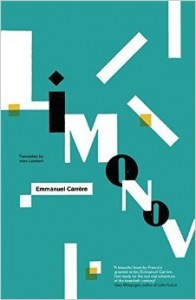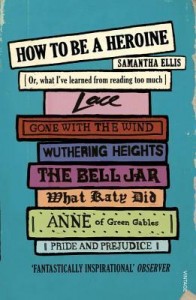
It feels like a bit of a cliché to yet again say how fast this month has gone, but it is once again a true statement. This is not entirely true, work days feel like they drag on and on, with so many stressful situations; I can see just how big of an impact it is making to my reading life. I much rather sit and watch television (or YouTube videos) after a difficult day of work than try and do any reading. Having said that, I still managed to read nine books in the month of July which seems to be my average for the year.
The first novel I read was One Night in Winter which was in part a campus novel, exploring a romantic poet (Alexander Pushkin) set in Moscow just after World War II. The author, Simon Sebag Montefiore normally writes non-fiction and has written a few biographies about Joseph Stalin. I found this to be an enjoyable novel with some flaws but what I appreciated were the endnotes. Montefiore goes through all the historical inaccuracies and explains why he made these changes for this novel.
After that I read Nest by Inga Simpson which is a contemporary novel about missing children, and I had a few problems with this one. If I focused on the nature writing, then I would call this book beautifully descriptive and stunning but my issue was with the mystery in the plot. All the descriptive writing about nature felt like a way to avoid discussing what was happening with the children. So I ended up thinking this book was just far too evasive and I ended up being frustrated by this.
Emmanuel Carrère’s memoir on Eduard Limonov was my next book and I felt like this one read so much like a novel. Translated from the French by John Lambert, Limonov is an amazing book about the leader of the National Bolshevik Party in the 2000s. The media often portrayed Limonov as a terrorist but reading through this biography reminded me just how the media is influenced by the political leaders in charge of running the country (in this case Vladimir Putin).
Next came a novel everyone is talking about, and that is A Little Life by Hanya Yanagihara. I have a bit of a love/hate relationship with this book, and I really appreciate that from a novel like this. There is so many parts in the novel where you just want to throw the book at the wall. I then went onto re-read Interview with the Vampire by Anne Rice and this time around it was not an enjoyable read. I wanted to explore the character development of Louis, Lestat, and Claudia but since this novel is only 300+ pages and covers over 400 years this was impossible.
Then I went on to finally read In the Miso Soup by Ryū Murakami (translated by Ralph McCarthy) which has been on my TBR for a very long time. This was a short psychological horror that dealt a lot with culture clash and the idea of trying to solve loneliness with sex. I read another short novella called By Night In Chile by Roberto Bolaño (translated by Chris Andrews) and this is the story of Jesuit priest Father Urrutia who believe he is going to die. In the course of the night this priest reflects on his lives in a feverish daze. It starts off as a tender book but then you start questioning this narrator as it becomes clear that not everything he is saying is actually true.
I went on to read yet another novel in translation, The Story of My Purity by Francesco Pacifico (translated by Stephen Twilley) which tells the story of Piero Rosini who is determined to be a modern saint. Things do not go to plan, as he tries to live a pure life; I enjoyed the way this book explores theology and invoked a lot of questions about religion and how people often have a misconception on what the Catholic Church teaches on the topic of sex. Finally I decided to pick a mindless mystery novel, so I thought World Gone By by Dennis Lehane was the right choice. This did not require much effort to read and with my job stress I thought that was what I needed. However I think I may have outgrown modern crime novels and all the tropes found in the bestsellers.
As far as my reading goes, July was a pretty great month. In fact July was a good month, except when it came to working. At the moment I am currently reading The Windup Girl by Paolo Bacigalupi, Mislaid by Nell Zink, The Green Road by Anne Enright and The Lucifer Effect by Philip G. Zimbardo so I have plenty to read going into August. I also plan to read some Richard Brautigan in the month of August, I have an omnibus that feature Trout Fishing in America, The Pill vs. the Springhill Mine Disaster and In Watermelon Sugar in it, so I will try to read all three books. Let me know how July was for you and what you plan to read in August.

 Title: Boyhood Island (
Title: Boyhood Island ( While reading The Lucifer Effect: Understanding How Good People Turn Evil by Philip G. Zimbardo, I have found myself thinking a lot about the Stanford prison experiment. This psychological experiment was led by Zimbardo and this book is his first full account of what actually happened. The Stanford prison experiment was a study into the psychological effects of the prison experience which was conducted at Stanford University in 1971. The funding for this experiment was provided by the U.S. Office of Naval Research, with interest from both the Navy and Marine Corps into the relationship between military guards and prisoners.
While reading The Lucifer Effect: Understanding How Good People Turn Evil by Philip G. Zimbardo, I have found myself thinking a lot about the Stanford prison experiment. This psychological experiment was led by Zimbardo and this book is his first full account of what actually happened. The Stanford prison experiment was a study into the psychological effects of the prison experience which was conducted at Stanford University in 1971. The funding for this experiment was provided by the U.S. Office of Naval Research, with interest from both the Navy and Marine Corps into the relationship between military guards and prisoners. Title: There But For The (
Title: There But For The (
 The second half of the year is upon us; it really is hard to believe the year has gone this far. How has everyone’s reading been for the past six months? I have personally had a great half-year reading and hope the next six months are just as productive. This month’s theme is books about books and we are reading How to be a Heroine by Samantha Ellis. I am so pleased with the choice and looking forward to some good discussions over on the
The second half of the year is upon us; it really is hard to believe the year has gone this far. How has everyone’s reading been for the past six months? I have personally had a great half-year reading and hope the next six months are just as productive. This month’s theme is books about books and we are reading How to be a Heroine by Samantha Ellis. I am so pleased with the choice and looking forward to some good discussions over on the